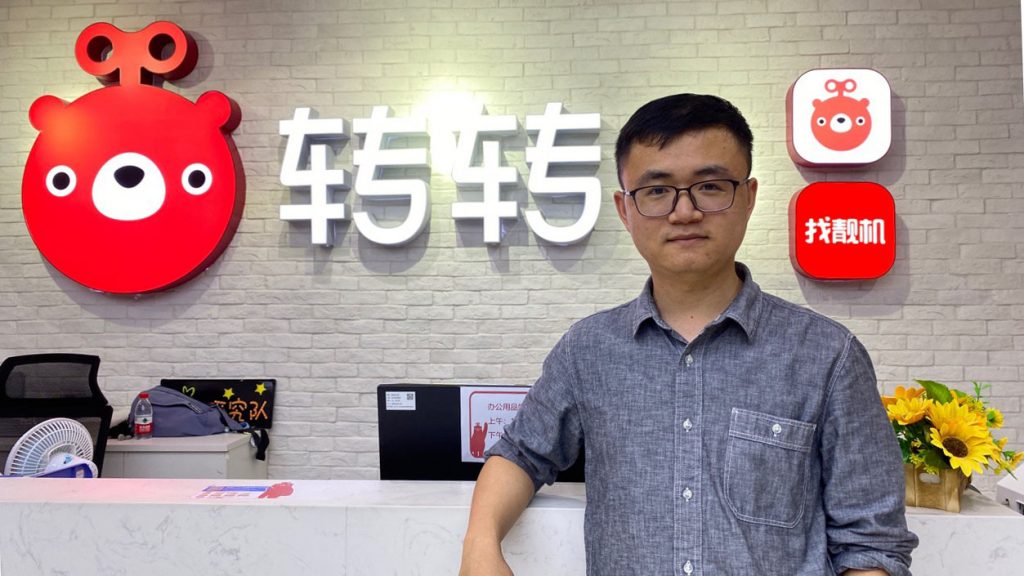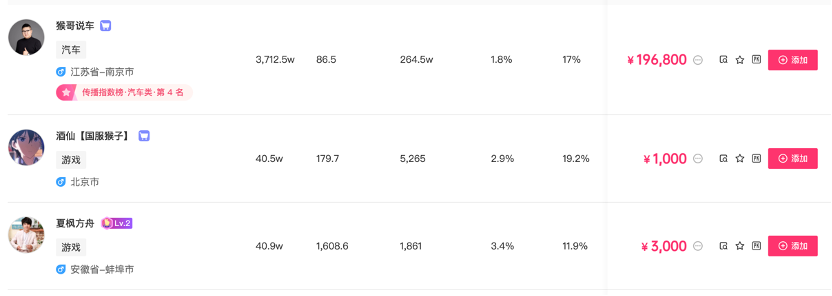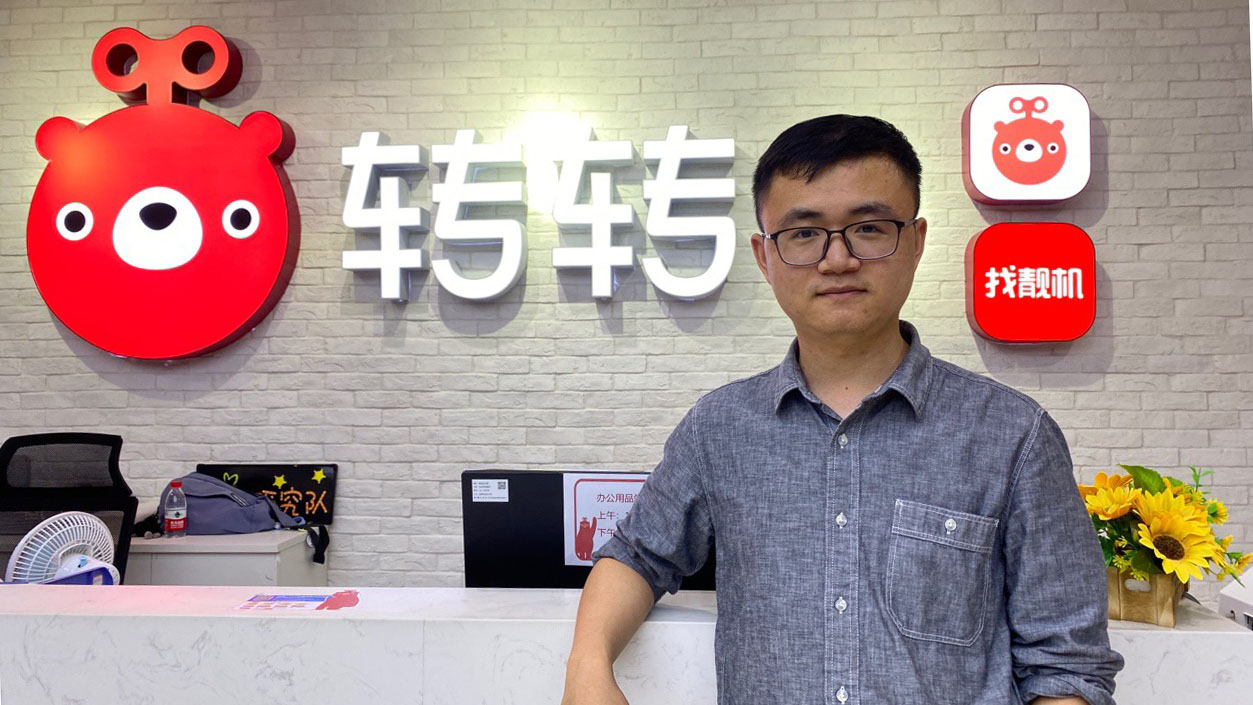Zhuanzhuan, a second-hand e-commerce platform in China, plans a fundraising round of about $400m, which now values the company at $3bn. How have they achieved this thus far from the ground up?

In 2014, Zhaoliangji (Find good phone) was founded in the middle of Huaqiangbei, Shenzhen. It is the predecessor of the current Zhuanhuan.
Just like other stores in Huaqiangbei, Zhaoliangji at that time did second-hand smartphone trading. They took phones apart for components selling, or, if the phone was in good shape and well-protected, they would sell it at a second-hand price.
“I joined Zhaoliangji when they were a really small start-up with less than 2,000-square-feet office. The office is also the warehouse, so basically, we were working at a warehouse with only 20 staff. Now, we have five thousand colleagues around the country,” said Zhe Xia, the vice president of Zhuanzhuan.
“The office sits in a building that is 30 more years old. You can literally see the building’s age through the furnishing and floor. The corridors’ lights are dim,” Zhe Xia recalled.
Zhaoliangji is a second-hand e-commerce platform in China, focusing on second-hand smartphone trading. It is famous for its high quality of second-hand goods. The company has carefully examined every used phone on Zhaoliangji before it reaches customers’ hands.
Zhaoliangji was situated in Huaqiangbei, one of Shenzhen’s famous retail areas, and with one of the largest electronics markets worldwide. This area’s status as a major electronics manufacturing centre, as well as its vast electronics market, has earned Shenzhen with Western nicknames like “China’s Silicon Valley” and “Silicon Valley of Hardware Wars.”
Hundreds of companies and stores do the same thing as Zhaoliangji does, but only Zhaoliangi has become a company worth $3bn. The last company that started from Huaqiangbei before becoming a tech giant was Tencent. Tencent still keeps their old office at Huaqiangbei as a souvenir.
“I have never expected we could grow to this big when I first came here as a digital editor. Needless to say, I was working in an environment surrounded by cargos,” Zhe Xia said. “In my consideration, the reason why we are more outstanding than others is how we adapted to the Internet.”
It was 2014, two years before Douyin launched, when Zhaoliangji first embraced the internet. They tried to write articles on Toutiao, a prominent news app in China. They barely had a digital department, but few people wrote articles about new published devices, including new iPhone or Samsung devices.
The company later succeeded Toutiao by reaching 100 thousand read articles and four million followers on their account. Moreover, their sales increased by inserting advertisements in every article they wrote, but what resulted was punishment.
“Our account was banned by the platform because our advertisements in articles violated Toutiao regulations. That was the darkest time for us. Almost every account we had on Toutiao got banned and we could not publish a single article,” Zhe Xia said. “We might harvest too many customers from that platform, which led to Toutiao blocking most of the accounts which might have a connection to us.”
The ban trapped Zhaoliangji for a while, but they soon found their silver lining. Douyin, a short-video social media app, was launched in September 2016; after a short exploration, it quickly became popular. It successfully broke through the storm and became as prominent as Kuaishou, the leader of the short video industry in China. Since November 2017, it has been ranked amongst the most downloaded photography and video apps in the App Store, ranking within the Top 20 overall.

“We saw Douyin as our chance to a breakthrough that we formed a small team to create content on it. And we tried to make our advertisements more subtle than on Toutiao,” Zhe Xia said. “What we did was that our team pretended to be a customer who just bought things from us and got a delivery box. Then, we unboxed it under the camera and put it on Douyin. We assumed that this way could give our potential customers an idea of how our goods look like. The boundary between customers and second-hand goods online is that they cannot physically see it. We were trying to solve it in this way.”
When Zhaoliangji gained success on social media, they soon expanded their marketing scale. The digital department was formed, while employees who created content increased from about ten to almost 200. According to Zhe Xia, the department was named Pirate Army, which meant that this department would harvest everything on the internet in any necessary method and without limitation. Zhe Xia was the first leader of this “army.”
Through Douyin content output “Zhaoliangji,” the brand was successfully input to users, as the overall download of the app indirectly improved. According to Baidu Index, the Chinese version of Google Analytics, the number of searches for “Zhaoliangji” has gradually increased since 2018, when Pirate Army was formed.

The company currently owns more than two thousand social accounts and produces and distributes various content forms on more than 20 platforms such as Douyin, Weibo, Toutiao, and Tieba. They have two billion fans in total, around half the total population of the EU.
So far, they have disseminated more than 100,000 pieces of content about digital products. The direct effect is that Zhaoliangji currently has nearly 40 million registered users and an annual revenue growth rate of 400%. It is because app downloads have always been at the forefront of e-commerce.
“Zhaoliangji attracted much attention in the Internet industry drainage, compared with their peers through the offline shop, ground-based promotion, or reliance on an industry giant to obtain high-cost traffic. Zhaoliangji found a low-cost traffic acquisition mode,” Tech News, a Chinese news website, commented.
“There was a time that one of our advertisements on Douyin became like a virus. It was about teaching others how to use a function on our app. By the end of that night, the video had ten million views, causing our servers to crash with so many new users. Also, on that day, our app became the number one free app in the App Store. There were dozen thousands of new users within two hours,” Zhe Xia said. “The IT guys hated us so much because they had to climb up from their bed to fix the server in the middle of the night.”
“We have multiple instances of similar experiences. The server blows up; we fix it, then we celebrate our success and prepare for next time.”
In 2020, Zhaoliangji and Zhuanzhuan merged to become the New Zhuanzhuan Group. Zhuanhuan is the second-in-command in the Chinese second-hand industry, whereas Zhaoliangji is an e-commerce platform that focuses only on second-hand electronic devices and is the top one in this category in China.
“Zhaoliangji is a great second-hand mobile phone B2C platform, while Zhuanzhuan is a platform that is good at second-hand trading and a comprehensive second-hand platform. After this merger, we will further consolidate the first position in online second-hand mobile phone user transactions, and also become the number 1 B2C in the mobile phone 3C field and the number 1 ONLINE C2B,” Wei Huang said when the merge happened.
The primary reason for the merger’s success was that Zhuanzhuan wanted to acquire the marketing ability of the Pirate Army.
“Although both sides have recognised strategic cooperation, they are more than just size; together, they can form a resultant force to achieve the final effect of 1 + 1 > 4. The four aspects refer to: find a beautiful machine powerful new media marketing and supply ability, do around product and processability, profound resource of Tencent and 58 city behind,” Shichun Wu, co-founder of Plum Ventures, commented on Jianshi Tech, which invested on Zhaoliangji.
Tencent and 58 city are known as Internet giants within China. Their businesses have reached every corner of the country by doing it by themselves or investing in it. WeChat is one of the products of Tencent. In addition, Tencent is 58 city’s largest shareholder.
The merge brought Zhaoliangji vast amounts of investment, which the Pirate Army benefits from the most. Subsequently, the Pirate Army has thought about spending more efficiently. Along with self-made content, they seek bloggers outside the company to advertise.
“Cooperating with other bloggers is a much more efficient way than self-making, but it needs a certain amount of money to do it,” said Zhe Xia.
Between October 1 and October 7 alone, the Pirate Army worked with 1,404 bloggers, receiving 2.182 billion ad impressions. The total cost of this period was around one million pounds only. It made their app become the third most downloaded on Apple’s App Store.
“We tried to cooperate with celebrities once; it cost us three million pounds to let one make a special promotion for us. But it brings back nothing, just like throwing money into the ocean,” Zhe Xia smiled ironically.
“The thing we did right was choosing Douyin as our main marketing battlefield at the very beginning. Lots of competitors were marketing in the old way, and after they found what we did was more efficient, they tried to copy what we were doing, but they were too late. We are way ahead of them now,” Zhe Xia said.
After years of marketing on Douyin, Zhuanzhuan is now one of Douyin’s biggest business customers. According to Zhe Xia, Bytedance, the mother company of Douyin, intends to modify Douyin to suit Zhuanzhuan’s marketing needs.
“Marketing on Douyin is a very low-cost marketing method compared to the traditional way. One video has the potential to reach ten million people, and what costs us is just 1~2 days salary of an editor. It is the era of short videos. We can say that before a decade ago, it was the Weibo (Chinese Twitter) era; before 20 years, it was the blog era. But now, there is no doubt that we are at the era of Douyin,” Zhe Xia remarked.
Not only did Zhaoliangji choose Douyin as their primary marketing media. Other new start-ups like Zhaoliangji, who did B2C, also considered Douyin as their crucial marketing area. Like Dewu, another e-commerce company in China that is only six years old has grown to an estimated $7bn company.
Instead of hiring people to create content on Douyin, Dewu has opted to cooperate with bloggers on Douyin to include their advertisements into the bloggers’ videos. It costs much higher than the way Zhaoliangji does it.
To help content creators make a profit on Douyin, Bytedance established a platform called Xingtu. It is a platform that exclusively serves advertisers and bloggers to do business. Moreover, Xingtu collects all information that advertisers need, such as bloggers’ contact, advertising price, and index for bloggers’ advertising ability.

Xingtu categorizes all bloggers by identifying what kinds of content they create, including cars, movies, food, fashion, and comedy. It also includes a category called Suitable Industry. For instance, if an owner of a restaurant wants to cooperate with bloggers, they can choose the Food in Suitable Industry category, leading Xingtu to provide a list of bloggers suitable for advertising restaurants.
Blogger’s advertising prices vary depending on the number of followers, the number of viewers that their videos have, and where their fans come from. These factors influence the price that bloggers put on their profile on Xingtu.

One can become a blogger to create content on Douyin. Once they have at least a thousand followers, they can update their profile to Xingtu to do business with advertisers.
